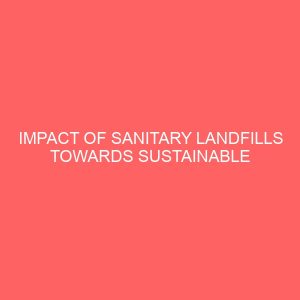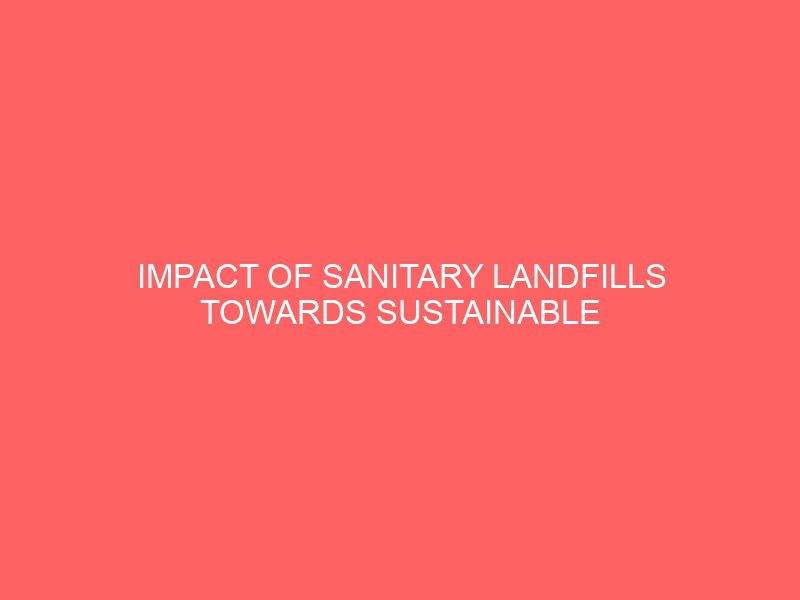Description
Abstract
This academic research is on Impact of sanitary landfills towards sustainable development in Nigeria. Landfills have for long been generally thought to have a diminution effect on residential property values. Various researches sparked off by this contention have proved contradictory in some instances. This study attempts to examine the impact of sanitary landfills towards sustainable development in Nigeria using a case study of underground water quality in Kaduna State. This study examined twelve (12) parameters of physical and chemical (including heavy metals) namely Temperature (0C), pH, Nitrate (N0-3), Chloride (Cl-), Total Hardness (TH), Total Suspended Solid (TSS), Dissolved Oxygen (DO), Electrical conductivity (EC), Iron (Fe), Chromium (Cr3+), Cadmium (Cd), and Lead (Pb). It was discovered that nitrate (N0-3), electrical conductivity (EC), total alkalinity (TA), iron (Fe), lead (Pb) and copper (Cu) were above the WHO standard limit in some samples. The concentration of heavy metals and chemical parameters such as iron, lead, and copper were more available in groundwater around Samaru Landfill 2 and 3 while, nitrate was the only chemical parameter with a high concentration around Samaru Landfill 1. Results also indicated that groundwater within the range of Samaru Landfill 1 had less concentration of heavy metals than the other landfills. Toward the control of groundwater vulnerability to pollution through landfills for sustainable development, It was recommended that adequate and proper planning, design and construction, and strategic management disposal of waste be adopted and put in place.








Reviews
There are no reviews yet.